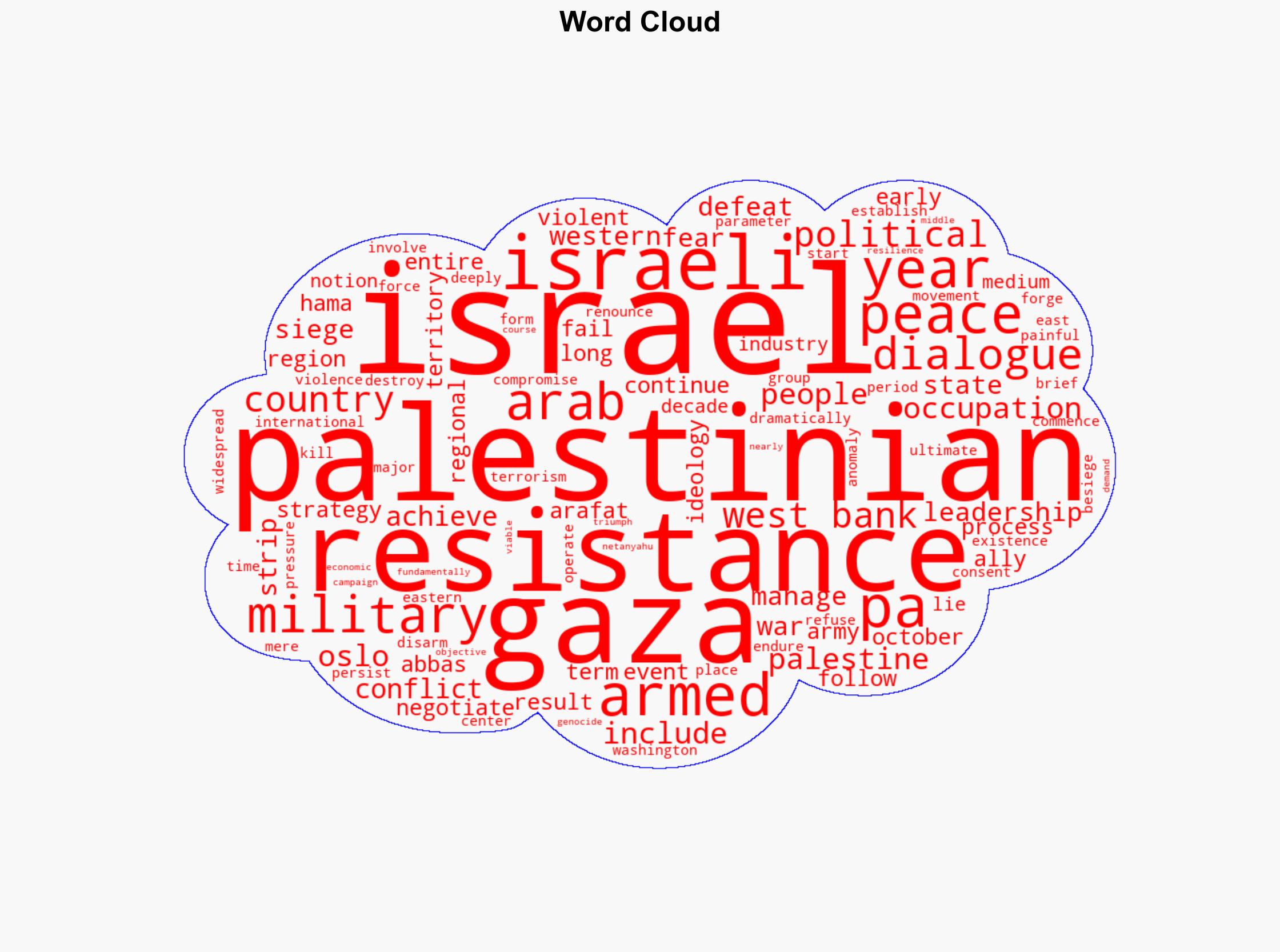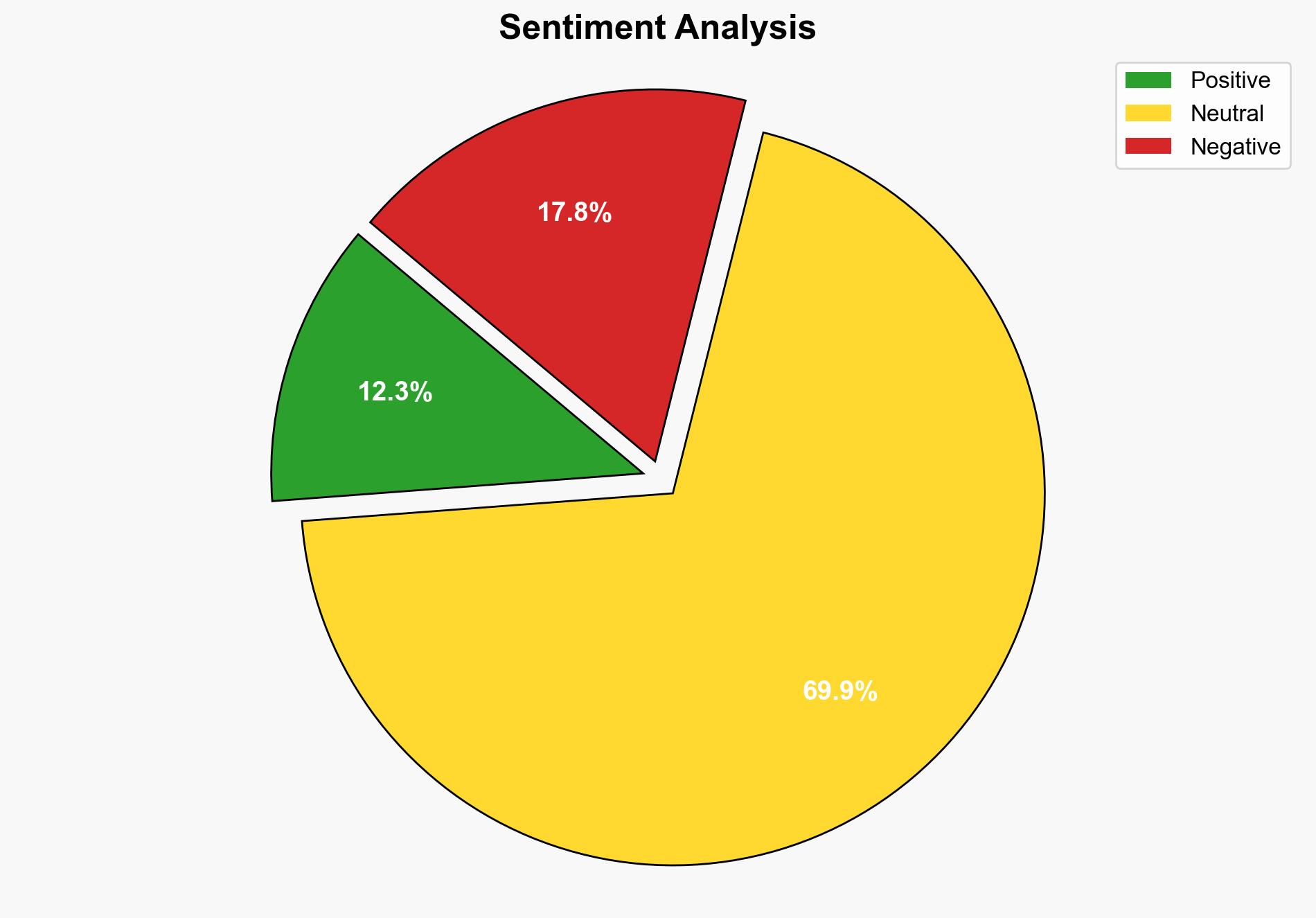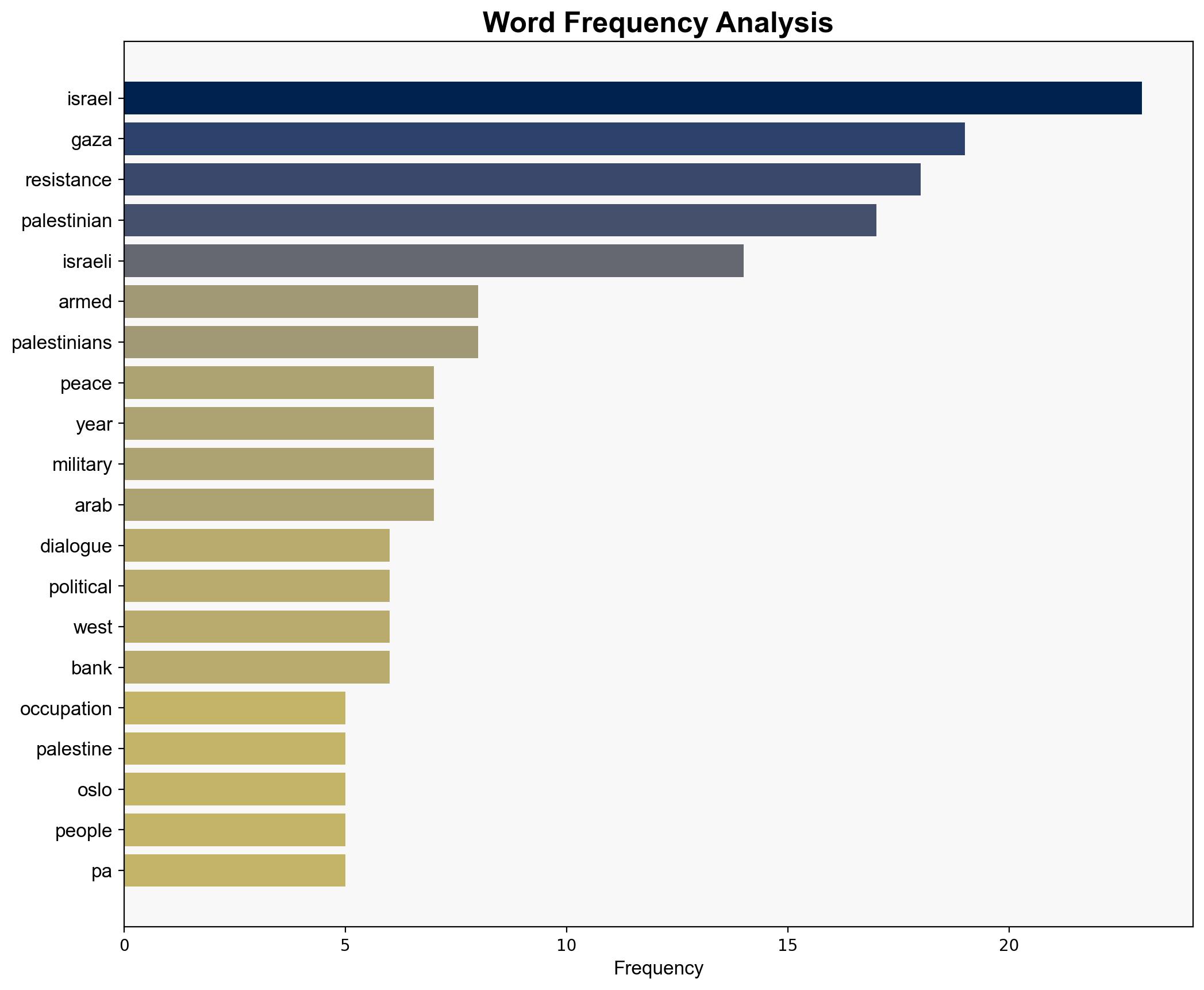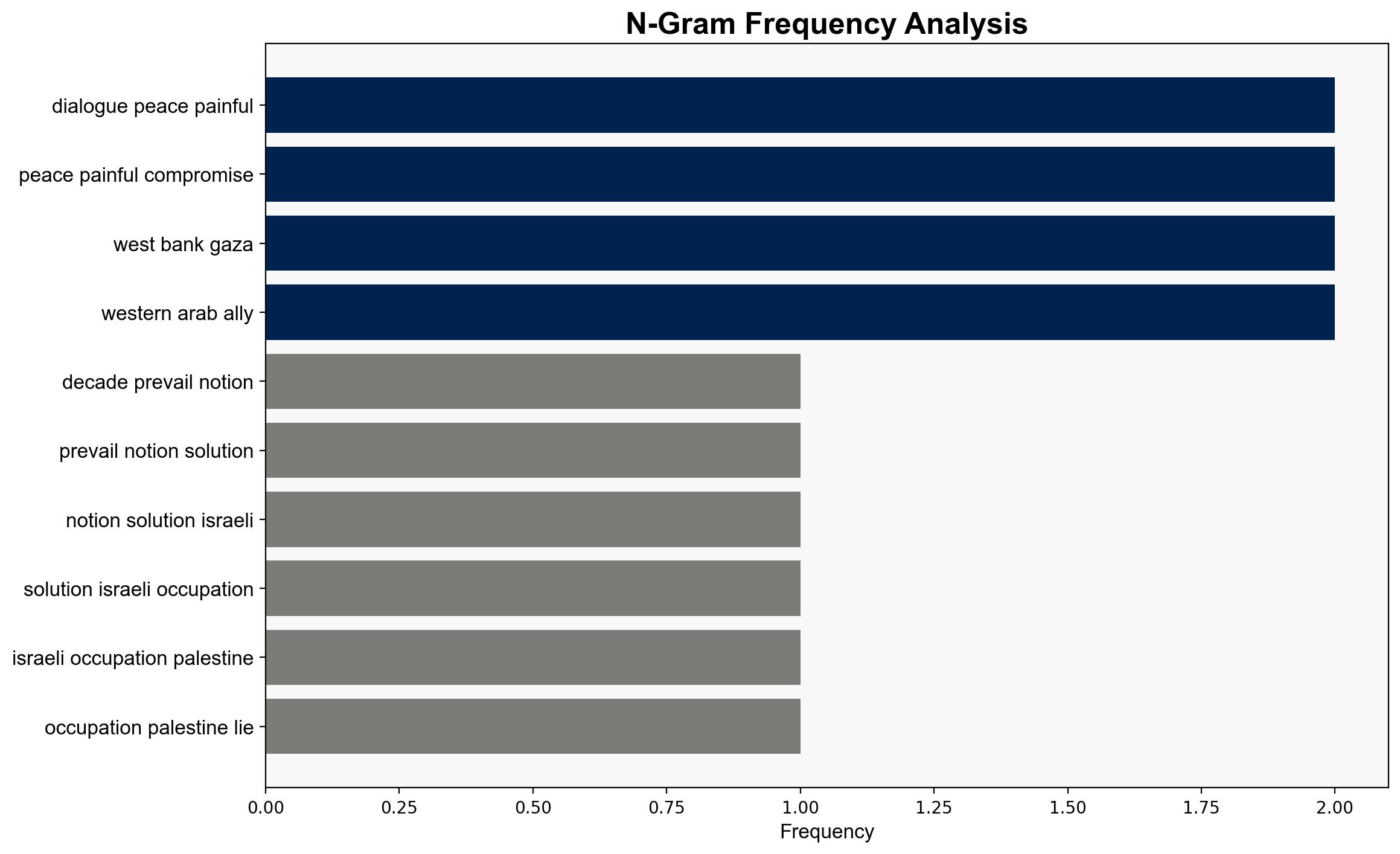The Defeat of Israel and the Rebirth of Palestinian Agency – Antiwar.com
Published on: 2025-10-13
Intelligence Report: The Defeat of Israel and the Rebirth of Palestinian Agency – Antiwar.com
1. BLUF (Bottom Line Up Front)
The analysis suggests a moderate confidence level in the hypothesis that the Palestinian agency is experiencing a resurgence due to strategic shifts in resistance and international dynamics. The recommended action is to closely monitor developments in Palestinian political movements and Israeli responses, focusing on potential shifts in U.S. and international policy.
2. Competing Hypotheses
Hypothesis 1: The resurgence of Palestinian agency is primarily driven by internal dynamics, including the failure of the Oslo Accords and the rise of new resistance movements such as Hamas in Gaza. This hypothesis is supported by the historical context of Palestinian disillusionment with past negotiations and the persistence of armed resistance despite Israeli military actions.
Hypothesis 2: The resurgence is largely influenced by external factors, including changing international perceptions and geopolitical shifts. This view posits that global criticism of Israeli policies and increased advocacy for Palestinian rights are catalyzing a renewed Palestinian agency.
Using the Analysis of Competing Hypotheses (ACH) method, Hypothesis 1 is better supported due to the detailed historical narrative of internal Palestinian developments and the consistent pattern of resistance despite external pressures. However, Hypothesis 2 cannot be dismissed, as international dynamics play a significant role in shaping local actions.
3. Key Assumptions and Red Flags
Assumptions include the belief that internal Palestinian dynamics are the primary drivers of change, and that international influence is secondary. A potential red flag is the lack of consideration for the role of emerging regional powers and their influence on both Israeli and Palestinian strategies. Additionally, the narrative may overlook the complexity of intra-Palestinian politics.
4. Implications and Strategic Risks
The resurgence of Palestinian agency could lead to increased tensions and potential escalation in the region, impacting geopolitical stability. Economic sanctions or shifts in international alliances could further complicate the situation. Cybersecurity threats may arise as both sides leverage digital platforms for advocacy and propaganda.
5. Recommendations and Outlook
- Monitor shifts in Palestinian leadership and grassroots movements to anticipate potential changes in strategy.
- Engage in diplomatic efforts to encourage dialogue and reduce tensions, focusing on multilateral approaches.
- Scenario-based projections:
- Best Case: Renewed peace negotiations with international support lead to a sustainable resolution.
- Worst Case: Escalation of violence leading to regional instability and international intervention.
- Most Likely: Continued low-level conflict with periodic escalations and international diplomatic efforts.
6. Key Individuals and Entities
Yasser Arafat, Mahmoud Abbas, Hamas, Palestinian Authority, Israeli Government
7. Thematic Tags
national security threats, geopolitical dynamics, regional focus, conflict resolution





